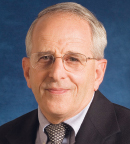
The severity of grade 3/4 adverse events was similar across all age groups; however, there was a trend toward higher nivolumab discontinuation (14% vs 17%) and use of steroids (42% vs 47%) in the older age groups.— William P. Tew, MD
Tweet this quote
Clinical trials focused on older adults with cancer were featured prominently at the 2016 ASCO Annual Meeting. There was a plenary session in glioblastoma, a clinical symposium on immunotherapy, and multiple educational lectures highlighting the growing literature and unique challenges in the treatment of older adults with cancer.
Combination Therapy in Glioblastoma
The combination of a short course of radiotherapy and oral temozolomide followed by maintenance with temozolomide significantly improved overall and progression-free survival compared with a short course of radiotherapy alone in newly diagnosed elderly patients with glioblastoma, according to the results of a randomized phase III trial. This was an important finding—as the prior pivotal study exploring this combination regimen was restricted to patients younger than age 70, which left a knowledge gap in a large proportion of older patients with this deadly disease.
James R. Perry, MD, FRCPC, Associate Professor of Medicine, University of Toronto, Sunnybrook Health Centre, Toronto, presented the results of this global cooperative group trial at the plenary session.1 The study included 562 patients aged 65 and older who were randomly assigned 1:1 to receive a short course of hypofractionated radiotherapy (40 Gy/15 fractions/3 weeks) alone or the same radiotherapy regimen plus 3 weeks of concomitant temozolomide and then monthly adjuvant temozolomide until disease progression or 12 treatment cycles. The median age was 73 years, and a large number of patients (69%) had partial or complete surgical resection.

James R. Perry, MD, FRCPC
In the patients who received temozolomide chemotherapy plus radiotherapy, median overall survival was 9.3 months, compared with 7.3 months in the radiotherapy-alone group, with a hazard ratio of 0.67 (95% confidence interval [CI]: 0.56–0.80; P < .0001). The 1-year and 2-year survival rates with temozolomide were 38% and 10% and without chemotherapy were 22% and 3%, respectively. The side effects were minimally increased in the combination arm, including nausea and vomiting during the first week, and less than 5% of patients had grade 3/4 hematologic toxicities.
Other Issues

Stuart Grossman, MD
Several concerns were raised by the study discussant, Stuart Grossman, MD, of Johns Hopkins University School of Medicine. To begin, the trial did not include a standard-of-care arm. The study used a 50% reduction in the radiotherapy fractions and temozolomide dose. Therefore, the older patients could have been undertreated compared with the doses used in younger patients in the prior pivotal study. In addition, a geriatric assessment of functional age was not included.
Finally, a tissue that correlates with O6-methylguanine-methyltransferase (MGMT) promoter methylation was analyzed in 462 patients. When it was detected, the median survival was 13.5 months with combination therapy, compared with 7.7 months with radiotherapy alone (P = .0001). Therefore, MGMT promoter methylation may prove to be a valuable marker in predicting which older patients may benefit most from treatment with temozolomide.
Immunotherapy for Skin, Renal, and Lung Cancers
Immunotherapeutic agents have emerged as effective treatments for many patients with metastatic melanoma, renal cell carcinoma, and non–small cell lung cancer (NSCLC). However, little is known about their efficacy and tolerability in older patients. Since former President Jimmy Carter, an active 91-year-old, publicly disclosed his success with a checkpoint inhibitor in treating his melanoma, there has been a growing interest in immunotherapy in the geriatric population.

Claire Friedman, MD
Claire Friedman, MD, of Memorial Sloan Kettering Cancer Center (MSK), New York, presented the MSK experience with immunotherapy (ipilimumab [Yervoy] and the programmed cell death protein 1 [PD-1] inhibitors pembrolizumab [Keytruda] and nivolumab [Opdivo]) in 95 patients with melanoma who were 80 years old or older (range, 80–93 years).2 Compared with results of the pivotal phase III studies, the MSK results showed that older patients had similar benefits (20% durable survival rates), but they also had modestly higher immune-related adverse effect rates (30%, 21%, and 63% grade 3/4 in ipilimumab, anti–PD-1, and combination regimens, respectively) as well as early treatment discontinuation rates due to toxicity (31%, 20%, and 50%, respectively).
Diarrhea, fatigue, transaminitis, and skin toxicity were the most common side effects reported with immunotherapy in the MSK experience. Special considerations were emphasized: Diarrhea could increase falls, dehydration, and renal dysfunction; steroids could worsen comorbidities such as diabetes, hypertension, and delirium; infliximab (Remicade) could increase the risk of severe infection in older patients.

Harpreet Singh, MD
Harpreet Singh, MD, of the U.S. Food and Drug Administration, focused on 1,030 patients (n = 616 aged < 65; n = 202 aged 65–69; n = 120 aged 70–74; n = 92 aged 75 and older) who received single-agent nivolumab on the registration trials in melanoma, renal cell, and NSCLC.3 The severity of grade 3/4 adverse events was similar across all age groups; however, there was a trend toward higher nivolumab discontinuation (14% vs 17%) and use of steroids (42% vs 47%) in the older age groups.
The discussant of this study, Jeffrey S. Weber, MD, PhD, of New York University Langone Medical Center, stressed the use of functional age and assessment of comorbidities before starting immunotherapy in older patients, particularly those older than age 75. ■
Disclosure: Dr. Tew reported no potential conflicts of interest.
References

